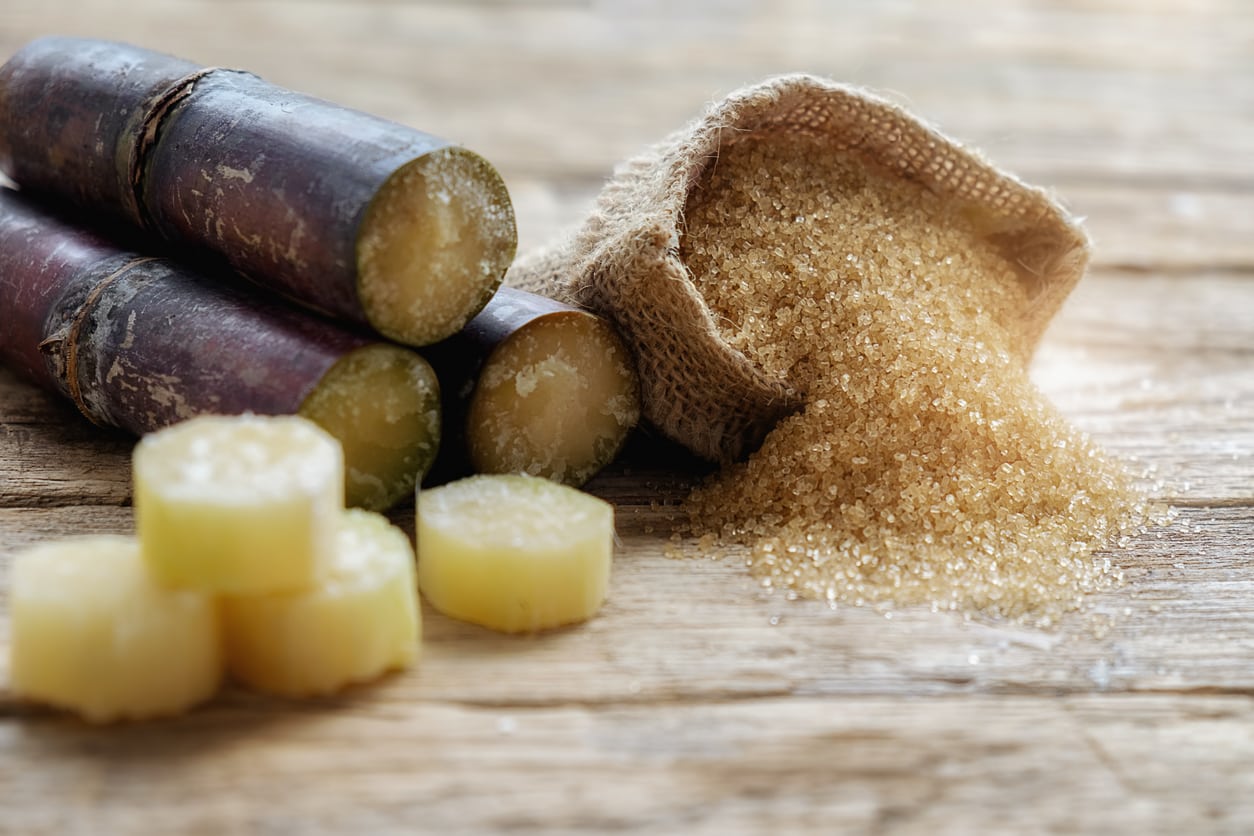A Closer Look at Sugar and Cane in the Global Food Industry
A Closer Look at Sugar and Cane in the Global Food Industry
Blog Article
Why Cane Sugar Processing Chemicals Are Vital for Modern Sugar Refining
The role of walking cane sugar processing chemicals in modern sugar refining can not be overemphasized, as they are essential to boosting both the efficiency of extraction and the general quality of the last item. Agents such as phosphoric acid and specific flocculants are used to eliminate pollutants, causing sugar that not only meets customer assumptions but also follows industry requirements. The implications of these chemicals expand past high quality, touching upon market dynamics and environmental factors to consider. sugar and cane. This elevates vital inquiries about the sustainability of such methods and their influence on the future of sugar production.
Role of Handling Chemicals
The efficacy of cane sugar processing pivots significantly on the strategic application of processing chemicals. These chemicals play a pivotal function in enhancing the performance and quality of sugar removal and refining. From the first phases of juice removal to the last filtration steps, handling chemicals assist in different crucial procedures.
In the extraction phase, chemicals such as phosphoric acid and calcium hydroxide are employed to maximize the information procedure, assisting to get rid of contaminations and put on hold solids from the cane juice. This not just boosts the return but also makes certain the clarity of the end product. In addition, representatives like flocculants aid in the rapid settling of contaminations, consequently improving the overall process.
Turned on carbon and ion exchange materials offer to eliminate shade and odor, making sure that the refined sugar fulfills consumer top quality requirements. Therefore, the careful option and application of these chemicals are important for attaining optimum results in walking stick sugar handling.
Trick Kinds Of Chemicals
Walking stick sugar handling relies upon a selection of key chemicals that facilitate each stage of manufacturing. These chemicals play crucial duties in clearing up, lightening, and detoxifying the sugar drawn out from cane.
One primary classification of chemicals includes flocculants, such as polyacrylamide, which aid in the clarification process by promoting the gathering and settling of pollutants. Furthermore, calcium hydroxide is frequently used to reduce the effects of acidity and aid in the removal of non-sugar parts.
Bleaching representatives, such as activated carbon and sulfur dioxide, are utilized to decolorize the syrup, leading to a more clear end product. These chemicals assist remove color compounds that may affect the sugar's look and bankability.
In addition, phosphoric acid works as a pH regulator during the processing stages, making sure ideal problems for the chemical tasks included in sugar removal and filtration.
Various other vital representatives include edta (ethylenediaminetetraacetic acid), which chelates metal ions that could militarize undesirable responses, and sodium hydroxide, which assists in pH control throughout the refining process. Jointly, these chemicals improve effectiveness and make sure a top quality cane sugar item.
Benefits for Sugar Top Quality
Usually overlooked, making use of details processing chemicals significantly boosts the overall top quality of walking stick sugar. These chemicals play a critical role in refining processes, ensuring that the last product meets rigid market requirements for purity and preference.

Additionally, refining chemicals aid in achieving a constant granulation and structure, which are crucial for consumer acceptance. By regulating the crystallization process, these chemicals guarantee that the sugar crystals develop evenly, bring about an extra appealing item that dissolves well in different applications.
Additionally, using these chemicals can improve the service life of walking cane sugar by minimizing dampness absorption and microbial growth. On the whole, the tactical application of processing chemicals is necessary for supplying top quality cane sugar that satisfies consumer assumptions and market needs.
Ecological Effect Considerations

In addition, the energy-intensive nature of sugar refining, compounded by chemical usage, typically leads to increased carbon discharges. This adds to environment adjustment and increases worries regarding the sustainability of current refining techniques. Additionally, the sourcing of these chemicals might entail techniques that endanger biodiversity, such as monoculture farming, which minimizes the strength of farming ecological communities.

To minimize these impacts, sugar refiners are increasingly look what i found discovering lasting alternatives and adopting ideal techniques that minimize chemical usage. Applying strenuous environmental management systems can assist guarantee that the refining process aligns with environmental standards and promotes biodiversity. Inevitably, a balanced approach that prioritizes both sugar top quality and ecological stewardship is crucial for the lasting stability of the sugar market.
Future Trends in Refining
As the sugar sector grapples with the ecological difficulties related to typical refining techniques, cutting-edge methods are emerging to boost both efficiency and sustainability. One considerable trend is the fostering of eco-friendly chemistry principles, which prioritize using non-toxic, eco-friendly processing chemicals. This change not just reduces ecological impact however additionally addresses consumer need for cleaner production techniques.
Another appealing advancement is the execution of sophisticated purification modern technologies, such as membrane separation and adsorption processes. These techniques enhance the clearness and quality of the sugar while reducing the quantity of wastewater generated during refining. Additionally, the integration of digital modern technologies, including IoT and AI, is changing functional effectiveness by enabling real-time surveillance and anticipating maintenance, hence reducing source waste.
Furthermore, making use of spin-offs from sugar refining, such as bagasse and molasses, is acquiring grip. These materials can be transformed into biofuels or value-added products, adding to a round economy within the industry. Jointly, these fads signify a shift in the direction of even more lasting practices that not only improve operational effectiveness but also align with global sustainability goals, making sure the future stability of sugar refining.
Final Thought
Walking stick sugar processing chemicals are essential in modern sugar refining, substantially improving the performance and high quality of sugar removal. The critical usage of these chemicals not only enhances the purity and flavor of the final item yet additionally makes certain regular formation and appearance. As the sector progressively prioritizes sustainability, the fostering of environmentally-friendly handling agents is likely to form future fads in refining, inevitably causing greater top quality products have a peek at these guys and prolonged rack life for customers.

Ultimately, a well balanced method that prioritizes both sugar top quality and environmental stewardship is crucial for the long-term feasibility of the sugar industry.
Walking stick sugar handling chemicals are essential in contemporary sugar refining, substantially boosting the performance and high quality of sugar removal.
Report this page